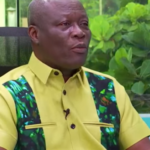The Chinese government is carrying out an intense attack on the global system for defending human rights, Kenneth Roth, executive director at Human Rights Watch, said on Tuesday in releasing Human Rights Watch’s World Report 2020.
Decades of progress that have allowed people
around the world to speak freely, live without fear of arbitrary imprisonment
and torture, and enjoy other human rights are at risk, Roth said.
At home, the Chinese government has created a vast
surveillance state in its efforts to achieve total social control. It is now
increasingly using its economic and diplomatic clout to fend off global efforts
abroad to hold it to account for its repression. To preserve the international
human rights system as a meaningful check on repression, governments should
band together to counter Beijing’s attacks.
“Beijing
has long suppressed domestic critics,” Roth said. “Now the Chinese government
is trying to extend that censorship to the rest of the world. To protect
everyone’s future, governments need to act together to resist Beijing’s assault
on the international human rights system.”
In the 652-page World Report 2020, its 30th edition, Human Rights
Watch reviews human rights practices in nearly 100 countries. Roth noted many
other threats to human rights around the world, including in Syria and Yemen,
where government forces from Syria, Russia, and the Saudi-led coalition
blatantly disregard the international rules designed to spare civilians,
including the prohibitions against attacking civilians and bombing hospitals.
An inhospitable terrain for human rights is aiding the Chinese government’s
attack. A growing number of governments that previously could be relied on at
least some of the time to promote human rights in their foreign policy now have
leaders, such as United States President Donald Trump, who are unwilling to do
so. And the autocratic populists who gain office by demonizing minorities and
keep power by eliminating independent journalists, judges, and activists bridle
at the same body of international human rights law that the Chinese government
undermines.
Many people across China, like everywhere else, want the right to live freely
and with dignity, Roth said. But President Xi Jinping’s government is
overseeing the most brutal and pervasive oppression that China has seen for
decades.
Authorities have shut down civic groups, silenced independent journalism, and
severely curtailed online conversation. They are seriously encroaching on Hong
Kong’s limited freedoms under “one country, two systems.” And in Xinjiang,
authorities have built a nightmarish surveillance system to control millions of
Uyghurs and other Turkic Muslims, arbitrarily detaining 1 million people for forced
political indoctrination.
Beijing has made technology central to its repression, Roth said, using mass
intrusions on people’s privacy through such tools as forced collection of DNA
samples, and then deploying big data analysis and artificial intelligence to
refine its means of control. The goal is to engineer a society that is free of
dissent.
To avoid global backlash for its crushing repression at home, the Chinese
government has significantly increased efforts to undermine the international
institutions designed to protect human rights. China intimidates other
governments – for example, repeatedly threatening other member states at the
United Nations to protect its image and deflect discussion of its abuses.
The Chinese government is courting and is itself courted by governments,
companies, and even academic institutions that ostensibly support human rights
but prioritize access to China’s wealth. They know that publicly opposing
Beijing’s repression puts at stake a chance at the Chinese market – 16 percent
of the world’s economy – as the US National Basketball Association quickly
discovered following a tweet by one team’s general manager.
Chinese authorities have faced few consequences from countries that purport to
defend human rights. The European Union, diverted by Brexit, obstructed by
nationalist member states, and divided over migration, has found it difficult
to adopt a strong common voice on human rights in China, although individual
European governments have at times been outspoken. Trump has embraced Xi,
although the US government has imposed sanctions for human rights violations on
the Xinjiang Public Security Bureau and eight Chinese technology companies.
Rising to the challenge of defending the world from Beijing’s frontal attack
calls for an unprecedented response from those who recognize that people and
their human rights matter. By acting together, governments could shatter
Beijing’s divide-and-conquer strategy, Roth said.
For example, if the Organisation of Islamic Cooperation (OIC) spoke out against
the repression of Muslims in Xinjiang, as it did for Rohingya Muslims
persecuted in Myanmar, Beijing would face pressure that matters to it.
Governments and international financial institutions should offer compelling,
rights-respecting alternatives to China’s “no strings” loans and development
aid. Companies and universities should draft and promote codes of conduct for
dealing with China – strong common standards would make it more difficult for
Beijing to retaliate against those who stand up for basic rights and freedoms.
Leaders committed to human rights should force a discussion of Xinjiang at the
UN Security Council so Chinese officials understand that they will not gain the
respectability they crave while they persecute people.
“Unless we want to return to an era in which people are pawns to be manipulated
or discarded according to the whims of their overlords, we must resist
Beijing’s assault on our rights,” Roth said. “Decades of progress on rights,
and our future, are at stake.
Source: HRW/ Publicagendagh.com














